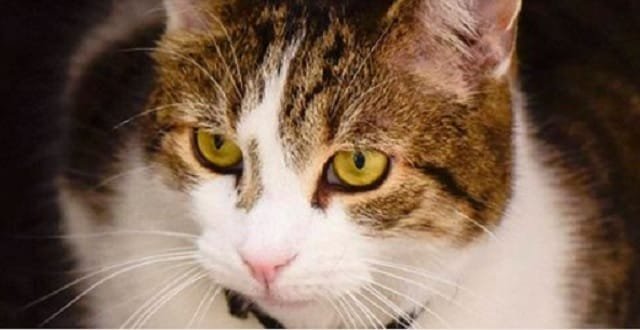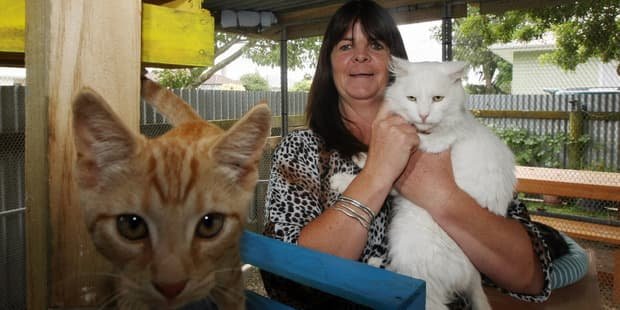BLOUNT, TENNESSEE – Nobody has to tell Diane Martin or Charlie Rafford how fast two cats can turn into hundreds.
Martin is president of the Smoky Mountain Animal Care Foundation, and Rafford is director of the Blount County Animal Center. The two came together recently to apply for a PetSafe grant which will hopefully turn the numbers in their favor.
The shelter opened in 2009 and despite its best efforts, it has continued to see more and more homeless and unwanted and feral cats and kittens. Some simply get dropped off at the front door.
A game-changing grant
There is good news to report. SMACF and BCAC did indeed do it, in fact, receive that special grant that will now be used to provide spay and neuter services to cats in Blount County, free of charge.
This is a potential game-changer.
“Last year we took in 1,363 cats,” Rafford said. “That was up 12 percent from the year before. It’s hard to adopt out cats. Fewer people are looking to adopt cats versus dogs.”
With this grant money, Rafford and Martin are hoping Blount County residents will bring in their male and female cats to be spayed and neutered so that the population won’t continue to blossom out of control. There are estimates that just one female cat can end up with as many as 1,000 offspring in as little as six years. Some estimates put that number much higher.
Martin said Blount County has reached the point of being saturated. This means lots of cats are coming in and not as many are going out.
And cats don’t do as well in shelters as dogs do, both Martin and Rafford agreed.
Definitely not the best place for cats
“Cats get very stressed out in a shelter environment,” Martin explained, because they aren’t pack animals. “When you get a lot of cats together, they get stressed out and develop respiratory illnesses.”
Antibiotics are used to treat the sick cats, but some simply don’t survive.
With this grant money from PetSafe, Rafford said he hopes to be able to spay and neuter somewhere between 200 and 300 cats. They are already scheduling surgery dates, the first one is set for Feb. 20. There were very few openings remaining for that date, but cat owners are encouraged to call now and get on a waiting list.
There is a limit of two cats per family to begin with, but more clinics will be scheduled over the next several months.
In addition to providing the free spay and neutering of cats, the Blount County Animal Center is also giving the animals rabies vaccinations.
Efforts to find good homes for cats.
On Friday, Rafford said he had 69 cats in the shelter, but he knows that number will rise again soon enough. As soon as warm weather gets here, that number will explode, he state.
The shelter does a good job of adopting out as many cats as possible. In 2015, the number was 777. There are some who came to the shelter back in 2015 that are still there, Rafford said.
When Martin and Rafford applied for the grant, they kew the problem of cat overpopulation wouldn’t be completely solved with this one-year project. But, Rafford said it’s a great way to start.
“We need to start affecting the number of stray and unwanted cats in this county long-term,” he said.
SMACF was founded back in 2007 with the mission of improving animal welfare in Blount County and East Tennessee. They use volunteers to foster animals needing permanent homes and they also assist with adoptions. Grant writing is a major part of what this nonprofit does as it works closely with BCAC.
Come springtime, litters and litters of kittens will arrive at the center, many from the same families. Rafford said if someone lives in Blount County, he is not able to refuse to take the animals they bring in.
“We have repeat customers who keep bringing us cat after cat after cat,” he said. “We are trying to get a handle on intake.”
A brighter future
Martin said by providing the free spay and neuter services, residents who feed cats that show up at their doorstep might just be inclined to bring them in for surgery. “In their heads they are still thinking, ‘that’s not my cat and I’m not spending any money on them,’” she said. “Making it free might get them here.”
The BCAC also transport some cats to northern states were there aren’t as many available for adoption, but that number is small. In 2015, only 25 cats were transported.
The animal center also has a full-time veterinarian on staff. It spends quite a bit of money on spaying, neutering and providing medicines, vaccinations and other care for cats and dogs.
Not all of these cats want human interaction. Rafford said they also get a number of feral cats, those used to living in the wild, many of whom don’t make good house pets. They do, however, make great barn cats. The BCAC is seeking people who might want to adopt one or more of them.
There is hope that this grant will once again be available next year. The 200 to 300 surgeries it performs in 2016 will definitely make a huge difference, and Rafford said he wants to see the momentum continue.
“If we don’t start now, we won’t accomplish anything,” he said.











